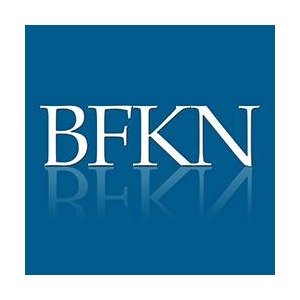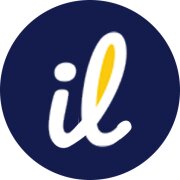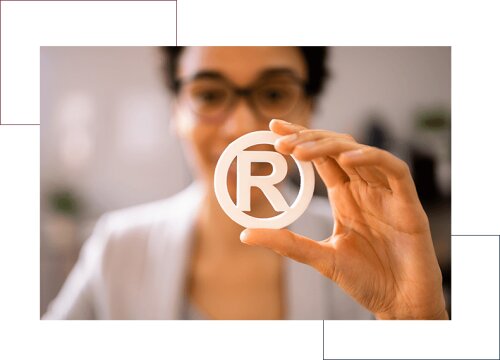Best Patent Lawyers in Illinois
Share your needs with us, get contacted by law firms.
Free. Takes 2 min.
Or refine your search by selecting a city:
List of the best lawyers in Illinois, United States
About Patent Law in Illinois, United States
Patent law is a branch of intellectual property law that protects inventions, new processes, machines, manufactured items, or compositions of matter. In Illinois, as in the rest of the United States, patents are granted and regulated by the United States Patent and Trademark Office (USPTO). When a patent is granted, it provides the inventor with exclusive rights to make, use, sell, or import the invention for a limited period, typically 20 years from the date of application. Illinois, especially cities like Chicago, is a hub for technological innovation, which makes it particularly important for inventors, startups, and businesses to understand how patent law operates at the federal and state level.
Why You May Need a Lawyer
Engaging a patent lawyer can be critical in several situations, including:
- Filing a Patent Application: Drafting and submitting a patent application can be technically complex and requires meeting specific legal standards. Mistakes can lead to rejection or limited protection.
- Patent Infringement: If you believe someone is using your patented invention without permission, or if you are accused of infringement, legal counsel is essential to protect your interests.
- Patent Searches: Before investing in an idea, a lawyer can help determine if similar patents already exist, potentially saving time and money.
- Enforcing Patent Rights: If you need to enforce your patent against infringers or negotiate licensing agreements, legal representation helps ensure you receive fair compensation.
- Responding to USPTO Actions: The USPTO may issue office actions or rejections requiring complex legal arguments or amendments.
- Challenges to a Patent: If someone challenges your patent's validity, or if you must challenge another's patent, a lawyer can represent you in administrative proceedings or court.
Local Laws Overview
Although patent law is governed primarily by federal statute, Illinois has important considerations for inventors and patent holders:
- Federal Jurisdiction: Patent cases are handled in federal courts, with the Northern District of Illinois (based in Chicago) being a prominent venue for patent litigation due to its concentration of businesses and institutions.
- Local Patent Rules: Some federal courts within Illinois have their own patent rules specific to case management, disclosure timelines, and discovery processes that differ from other districts.
- State Business Laws: Licensing agreements, sales of patent rights, or business formations involving patents will generally be subject to Illinois state contract and business law.
- Patent Troll Litigation: Illinois courts, especially in Chicago, have seen cases involving "patent assertion entities" or "patent trolls." Local legal professionals are well-versed in defending against such lawsuits.
- University and Research Patents: Illinois universities and research institutions often have special patent policies regarding inventions created by employees or with university resources.
Frequently Asked Questions
What qualifies for a patent in Illinois?
To qualify for a patent, your invention must be new, useful, and non-obvious. It can be a process, machine, manufactured article, or composition of matter. Abstract ideas or natural phenomena generally cannot be patented.
Do I need a lawyer to file a patent application?
While you are not legally required to have a lawyer, the patent process is complex. A licensed patent attorney can greatly increase your chances of success and help you avoid costly errors.
How long does the patent process take?
The process typically takes 1 to 3 years, depending on the complexity of the invention and backlog at the USPTO. Some applications, especially those without errors or with expedited processing, may move quicker.
Can I enforce my patent in Illinois state courts?
No, patent enforcement is done through the federal court system. However, related contractual disputes may be handled in Illinois state courts.
How much does it cost to get a patent?
Costs vary widely based on invention complexity, attorney fees, and required USPTO fees. For a typical utility patent, total costs can range from $8,000 to $15,000 or more, including professional services.
Does having a patent protect my invention worldwide?
No, a United States patent only protects your invention within the United States and its territories. International protection requires filing in each country or region where you seek rights, often through the Patent Cooperation Treaty (PCT).
What should I do if someone infringes my patent?
Consult a patent attorney immediately. They can help you determine if infringement has occurred, send cease-and-desist letters, and represent you in negotiation or litigation if necessary.
What is a provisional patent application?
A provisional application is a lower-cost, temporary way to establish an early filing date for your invention. It does not itself become a patent but may be converted to a non-provisional (regular) patent application within one year.
Can inventors employed by a company in Illinois own their patents?
Often, inventions made as part of employment belong to the employer, not the individual inventor, especially if created within the scope of employment or using company resources. Always review your employment contracts and company policies.
How long does patent protection last?
For utility patents, protection generally lasts 20 years from the application filing date. Design patents last 15 years from the date of grant. Maintenance fees are required to keep utility patents in force.
Additional Resources
If you are seeking information, support, or legal advice regarding patents, consider these resources:
- United States Patent and Trademark Office (USPTO) - Offers forms, fee details, databases, and guidance for inventors nationwide.
- Illinois Intellectual Property Alliance - A nonprofit network of attorneys and IP professionals providing educational events and resources.
- Chicago Bar Association - Has an Intellectual Property Law Committee and a lawyer referral service to connect you with experienced local patent attorneys.
- Local law schools - Institutions like Northwestern University and the University of Illinois have clinics that sometimes assist inventors with patent filings or related legal questions.
- Federal District Courts in Illinois - Particularly the Northern District of Illinois, which is the main venue for patent litigation in the state.
Next Steps
If you believe you need legal assistance about a patent issue in Illinois, consider taking the following steps:
- Document your invention thoroughly, including drawings, prototypes, and written descriptions.
- Conduct a basic patent search to check if similar inventions exist, using the USPTO online database.
- Reach out to a licensed patent attorney based in Illinois for a consultation. Many offer initial consultations to assess your needs.
- Gather all written agreements, lab notebooks, or emails if your invention is related to your employment or made with collaborators.
- Be prepared to discuss your invention's uniqueness, its market potential, and any public disclosures you may have made.
- Follow your attorney’s guidance for filing applications, responding to USPTO communications, and protecting or enforcing your patent rights.
- If you cannot afford legal fees, seek support from law school clinics, nonprofit organizations, or bar associations that may provide reduced-cost or pro bono assistance.
Taking these steps can help protect your invention, avoid common pitfalls, and position you for success in securing and enforcing your patent rights in Illinois.
Lawzana helps you find the best lawyers and law firms in Illinois through a curated and pre-screened list of qualified legal professionals. Our platform offers rankings and detailed profiles of attorneys and law firms, allowing you to compare based on practice areas, including Patent, experience, and client feedback.
Each profile includes a description of the firm's areas of practice, client reviews, team members and partners, year of establishment, spoken languages, office locations, contact information, social media presence, and any published articles or resources. Most firms on our platform speak English and are experienced in both local and international legal matters.
Get a quote from top-rated law firms in Illinois, United States — quickly, securely, and without unnecessary hassle.
Disclaimer:
The information provided on this page is for general informational purposes only and does not constitute legal advice. While we strive to ensure the accuracy and relevance of the content, legal information may change over time, and interpretations of the law can vary. You should always consult with a qualified legal professional for advice specific to your situation.
We disclaim all liability for actions taken or not taken based on the content of this page. If you believe any information is incorrect or outdated, please contact us, and we will review and update it where appropriate.
Browse patent law firms by city in Illinois
Refine your search by selecting a city.











